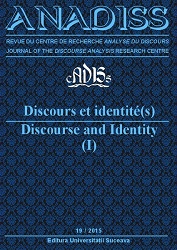L’exile comme expérience de la séparation dans le discours littéraire sur l’enfance (Nabokov et Sarraute)
The exile as experience of separation in the literary discourse on childhood (Nabokov and Sarraute)
Author(s): Daniela Cătău-VereșSubject(s): Language and Literature Studies
Published by: UNIVERSITATEA »ȘTEFAN CEL MARE« SUCEAVA
Keywords: exile; Nabokov; Sarraute; speeches; identity; self-reconstruction; melancholy; grief; remembrance; childhood story;
Summary/Abstract: Writing exile recreates the experience of separation from the family or his country with sorrow it implies, while commemorating a lost world that thankfully can be retrieved by the memory. The childhood story implements indeed a self-reconstruction process, like a puzzle, which mobilizes different discursive means in the language rituals specific to each writer. Even fragmented, with no precise linearity or devoid of chronology, the childhood story is a means of escape from the prison that is the time especially for the writer in exile in a foreign country, like Nabokov and Sarraute, but also an opportunity to rebuild the original identity after the cultural shock of coming into contact with a foreign culture to the fragile age of childhood. The recovery of this identity is possible through research and the faithful transcription of memory.
Journal: ANADISS
- Issue Year: 10/2015
- Issue No: 19
- Page Range: 87-93
- Page Count: 7
- Language: French

